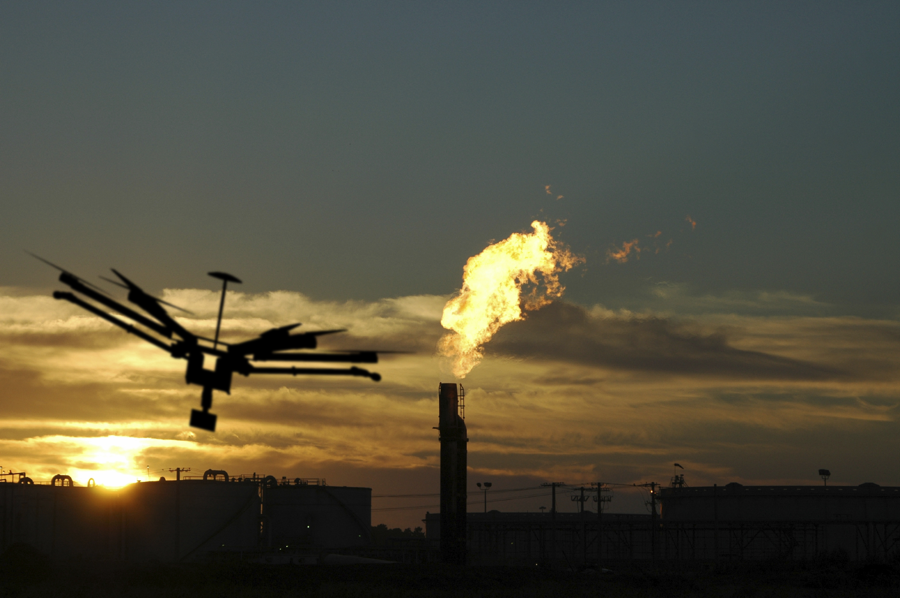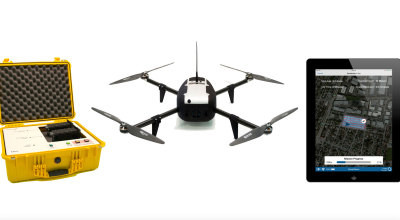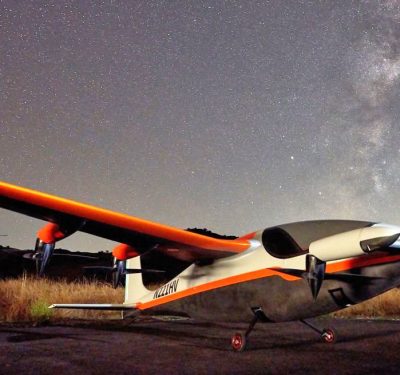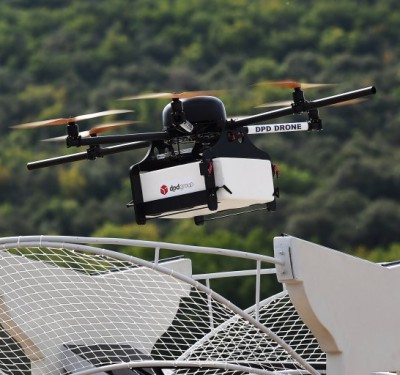
Total Safety
Total Safety U.S. Inc. recently announced that the FAA granted the company a regulatory exemption for the commercial use of drones for flare inspections.
Total Safety is now the only company approved to perform flare inspections on land using small UASs, according to a news release.
Flare stack inspection is critical to Total Safety customers, according to the release, but it often requires expensive downtime. To ensure the safety of employees who work at plants, refineries, pipelines, tank batteries, drilling rigs, production rigs and a variety of other manufacturing environments, these inspections should be conducted routinely.
During these inspections units must be taken offline or a temporary flare must be used to bypass it—and that could lead to hours or days with reduced or no production.
These flares can be several hundred feet tall with temperatures reaching more than 2000F, according to the release, and sometimes it isn’t possible to shut them down to perform an inspection. This creates a dangerous situation where employees may climb a nearby structure or use a sky lift to get a better view of the flare. Using a manned helicopter is another option, but an expensive one.
“Typically chemical plants and refineries are no fly zones so making these visual inspections is only possible from a distance,” General Manager of Total Safety Flare Services Lawrence Crynes said, according to the release. “But distance and other factors can compromise the effectiveness of an inspection and they are sometimes impossible to do because of weather, trees, wires, fencing and other restrictions.”
UASs make it possible to safely inspect flares while they’re still in operation, according to the release.
Total Safety drone technology is a two-person operation—one technician to pilot the drone and another to wear special googles that makes it possible to see what the camera sees, and to take close-up, high resolution photos and video employees can study later.
This technology is said to improve safety, reduce liability, as well as save time and money while routinely performing these necessary inspections.
For more information visit totalsafety.com.






